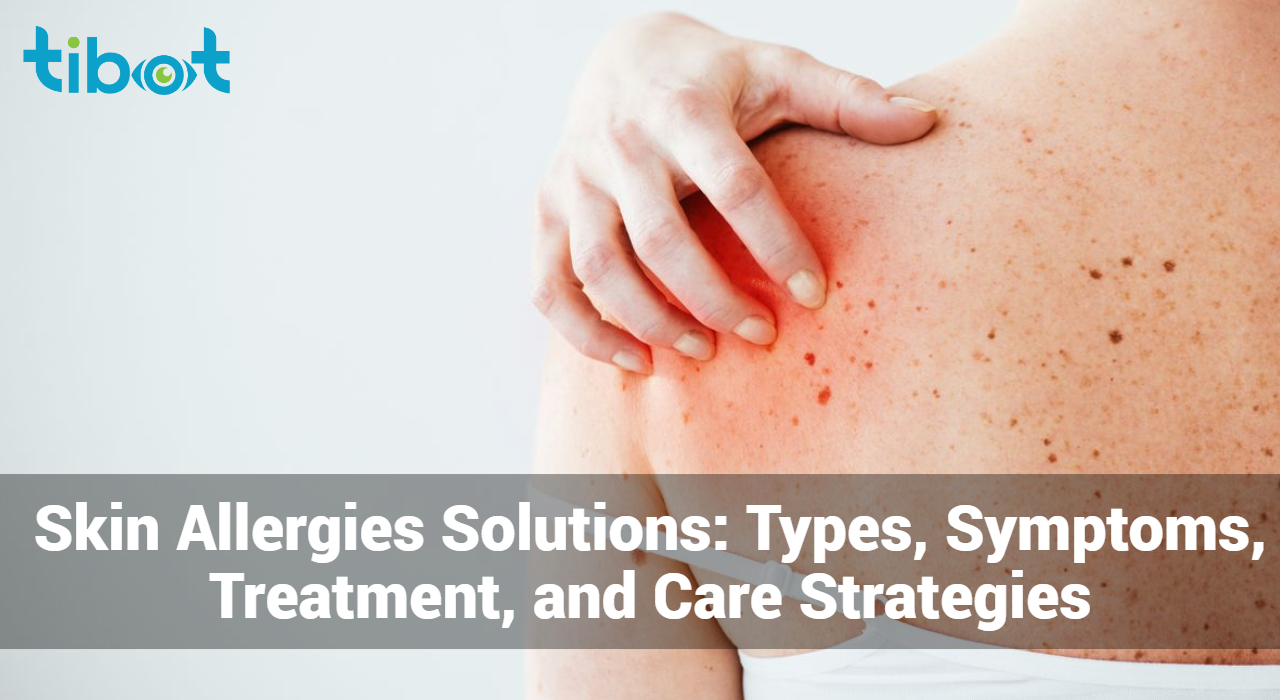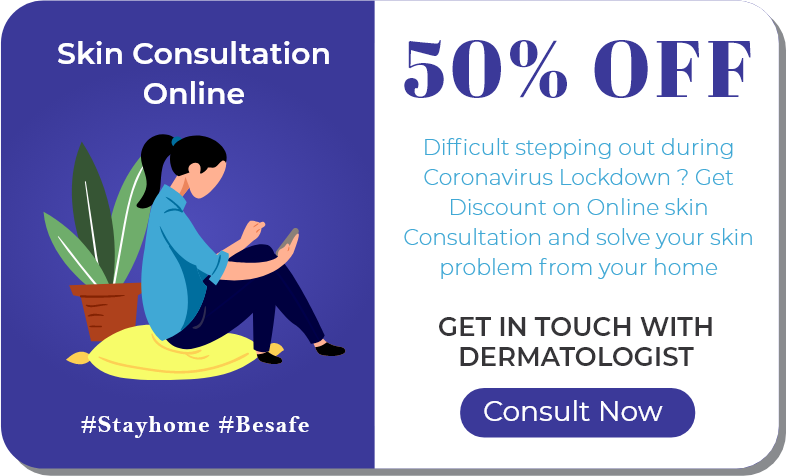Skin Allergies Solutions: Types, Symptoms, Treatment, and Care Strategies

Skin allergies, also known as allergic dermatitis, can cause discomfort and distress for those affected. Understanding the types, symptoms, diagnosis, treatment options, and care strategies for skin allergies is essential for effective management and relief. In this comprehensive guide, we will explore everything you need to know about skin allergies.
Types of Skin Allergies
Skin allergies encompass a range of conditions where the immune system reacts abnormally to substances that are typically harmless to most people. Here are some common types of skin allergies:
- Contact Dermatitis:
- Allergic Contact Dermatitis: This occurs when the skin comes into contact with an allergen, triggering an immune response. Common allergens include metals (e.g., nickel), cosmetics, fragrances, and latex.
- Irritant Contact Dermatitis: This type of contact dermatitis is caused by direct exposure to irritants such as harsh chemicals, soaps, detergents, or solvents. It does not involve an immune system reaction.
- Atopic Dermatitis (Eczema):
- Atopic dermatitis is a chronic inflammatory skin condition characterized by dry, itchy, and inflamed patches of skin. It often runs in families and is associated with other allergic conditions like asthma and hay fever.
- Allergic Reactions:
- Hives (Urticaria): Hives are raised, itchy welts on the skin that result from an allergic reaction to food, medication, insect stings, or other triggers.
- Angioedema: Angioedema is swelling beneath the skin’s surface, typically around the eyes and lips, that can occur as part of an allergic reaction.
- Photoallergic and Phototoxic Reactions:
- Photoallergic Reaction: This occurs when a substance applied to the skin reacts with sunlight, triggering an immune response and causing a rash. Common triggers include certain medications, fragrances, and plants like limes or parsley.
- Phototoxic Reaction: Phototoxic reactions are similar but do not involve an immune response. Instead, certain substances become toxic when exposed to sunlight, leading to skin irritation or burns.
- Drug Allergies:
- Some medications can cause allergic reactions in the skin, resulting in rashes, hives, or more severe symptoms like Stevens-Johnson syndrome or drug-induced hypersensitivity syndrome.
- Food Allergies:
- While food allergies typically manifest with systemic symptoms like hives, swelling, or difficulty breathing, they can sometimes cause skin reactions like eczema or itching.
- Latex Allergy:
- Latex allergy can cause skin reactions ranging from mild irritation to severe rashes, hives, or even anaphylaxis upon contact with latex products like gloves, condoms, or balloons.
- Insect Sting Allergies:
- Some people are allergic to insect venom and may experience localized skin reactions like swelling, redness, itching, or hives after being stung by insects such as bees, wasps, or ants.
- Nickel Allergy:
- Nickel allergy is one of the most common causes of contact dermatitis. It can result in red, itchy rashes or blisters when nickel-containing items like jewelry, clothing fasteners, or electronic devices come into contact with the skin.
- Plant Allergies:
- Certain plants, such as poison ivy, poison oak, or poison sumac, contain allergenic substances that can cause allergic contact dermatitis upon skin contact.
Understanding the specific type of skin allergy is essential for proper diagnosis and management. If you suspect you have a skin allergy, consult a healthcare professional or allergist for evaluation and personalized treatment recommendations.
Symptoms of Skin Allergies:
Skin allergies can manifest with a variety of symptoms, ranging from mild to severe. The specific symptoms experienced may vary depending on the type of allergy and individual factors. Here are common symptoms of skin allergies:
- Redness (Erythema):
- Skin allergies often cause redness or inflammation in the affected areas. The skin may appear flushed, irritated, or blotchy.
- Itching (Pruritus):
- One of the hallmark symptoms of skin allergies is itching, which can range from mild to intense. Itching may be localized to specific areas or affect larger areas of the body.
- Rash:
- Skin allergies can cause various types of rashes, including raised bumps, patches of redness, or blisters. The rash may be localized or spread across larger areas of the body.
- Hives (Urticaria):
- Hives are raised, itchy welts that appear on the skin as a result of an allergic reaction. They can vary in size and shape and may come and go within hours.
- Swelling (Angioedema):
- Angioedema is swelling that occurs beneath the skin’s surface, typically around the eyes, lips, face, or throat. It may be accompanied by itching or a burning sensation.
- Blisters:
- Some skin allergies can cause the formation of blisters filled with fluid. These blisters may be small or large and can be painful or itchy.
- Dryness and Flaking:
- Allergic skin reactions may result in dry, flaky skin, especially in eczema or allergic contact dermatitis. The skin may feel rough, tight, or scaly.
- Crusting or Oozing:
- In some cases, allergic skin reactions can lead to the formation of crusts or the oozing of clear fluid from the affected areas. This may occur in conditions like eczema or contact dermatitis.
- Tenderness or Pain:
- Skin allergies may cause tenderness or pain in the affected areas, particularly if the skin is inflamed, swollen, or blistered.
- Warmth to the Touch:
- Inflamed skin may feel warm or hot to the touch, especially during acute allergic reactions.
- Secondary Infections:
- Scratching the skin due to itching can lead to breaks in the skin’s barrier, increasing the risk of secondary bacterial or fungal infections.
It’s important to note that the symptoms of skin allergies can vary widely depending on the individual and the specific allergen involved. If you experience any of these symptoms or suspect you have a skin allergy, it’s essential to seek medical advice for proper evaluation and treatment. A healthcare professional, such as a dermatologist or allergist, can help diagnose the underlying cause of your symptoms and recommend appropriate management strategies.
Diagnosis of Skin Allergies
Diagnosing skin allergies often involves a combination of medical history, physical examination, and allergy testing. A healthcare provider may inquire about potential triggers, perform a skin patch test or prick test, and conduct a thorough evaluation of the affected skin.
Treatment Options for Skin Allergies
Treatment for skin allergies aims to alleviate symptoms, reduce inflammation, and prevent future flare-ups. The approach may vary depending on the type and severity of the allergy. Here are common treatment options for skin allergies:
- Avoidance of Triggers:
- The first step in managing skin allergies is to identify and avoid the triggers that cause the allergic reaction. This may involve avoiding specific allergens, such as certain foods, cosmetics, fabrics, or environmental factors like pollen or pet dander.
- Topical Steroids:
- Topical corticosteroids are commonly used to reduce inflammation, itching, and redness associated with allergic skin reactions, such as contact dermatitis or eczema. They come in various strengths and formulations (cream, ointment, gel) and should be used as directed by a healthcare professional.
- Topical Calcineurin Inhibitors:
- Topical calcineurin inhibitors, such as tacrolimus (Protopic) and pimecrolimus (Elidel), are non-steroidal medications that help reduce inflammation and itching in allergic skin conditions like eczema. They are often used as alternative treatments for sensitive areas or when corticosteroids are not suitable.
- Antihistamines:
- Oral or topical antihistamines can help relieve itching and reduce allergic reactions in the skin. They work by blocking the effects of histamine, a chemical released during allergic responses. Examples include loratadine (Claritin), cetirizine (Zyrtec), and diphenhydramine (Benadryl).
- Moisturizers:
- Regular use of moisturizers helps hydrate the skin, improve its barrier function, and reduce dryness and itching associated with allergic skin conditions like eczema. Choose fragrance-free, hypoallergenic moisturizers and apply them liberally, especially after bathing or showering.
- Cool Compresses:
- Applying cool compresses or wet wraps to the affected areas can help soothe itching, reduce inflammation, and provide relief from symptoms of allergic skin reactions.
- Oatmeal Baths:
- Oatmeal baths can help relieve itching, inflammation, and irritation associated with allergic skin conditions like eczema or hives. Add colloidal oatmeal to lukewarm bathwater and soak for 10-15 minutes.
- Allergen Immunotherapy:
- Allergen immunotherapy, also known as allergy shots or allergy desensitization, may be recommended for individuals with severe or persistent skin allergies. This treatment involves gradually exposing the body to small amounts of the allergen to desensitize the immune system and reduce allergic reactions over time.
- Prescription Medications:
- In severe cases or when other treatments are ineffective, prescription medications such as oral corticosteroids, immunomodulators, or biologic agents may be prescribed by a healthcare professional to manage symptoms and control allergic skin reactions.
- Phototherapy:
- Phototherapy involves exposing the skin to controlled doses of ultraviolet (UV) light to reduce inflammation and itching associated with certain allergic skin conditions like eczema or psoriasis. It is typically performed under medical supervision in specialized clinics.
Analyze Skin Rash
Use our Skin Symptom Checker to find what is causing an itchy rash on your Skin
It’s essential to consult a healthcare professional, such as a dermatologist or allergist, for proper evaluation and personalized treatment recommendations if you suspect you have a skin allergy. They can help identify triggers, develop an appropriate treatment plan, and provide guidance on managing your condition effectively.
Care Strategies for Skin Allergies
Care strategies for skin allergies aim to minimize exposure to triggers, soothe symptoms, and maintain skin health. Here are some effective care strategies for managing skin allergies:
- Identify and Avoid Triggers:
- Determine the substances or environmental factors that trigger your skin allergies and take steps to avoid them. Common triggers include certain foods, cosmetics, detergents, fabrics, pet dander, pollen, and environmental allergens.
- Choose Skin-Friendly Products:
- Opt for hypoallergenic, fragrance-free, and non-comedogenic skincare products, including soaps, cleansers, moisturizers, and cosmetics. Avoid products containing harsh chemicals, dyes, fragrances, or preservatives that may irritate sensitive skin.
- Protective Clothing:
- Wear protective clothing, such as long sleeves, pants, and gloves, when coming into contact with potential allergens or irritants. Consider using barrier creams or gloves when handling substances known to trigger allergic reactions.
- Moisturize Regularly:
- Keep your skin well-hydrated by applying moisturizers regularly, especially after bathing or showering. Choose moisturizers formulated for sensitive or dry skin and free of potential allergens like fragrances or lanolin.
- Cool Compresses:
- Apply cool compresses or wet towels to affected areas to soothe itching, reduce inflammation, and provide relief from allergic skin reactions. Avoid hot water, which can exacerbate itching and dry out the skin.
- Avoid Scratching:
- Resist the urge to scratch or rub affected areas, as this can further irritate the skin, cause inflammation, and lead to secondary infections. Instead, gently pat or tap the skin to alleviate itching.
- Manage Stress:
- Practice stress-reduction techniques like mindfulness, meditation, deep breathing exercises, or yoga to manage stress levels. Stress can exacerbate allergic skin reactions and trigger flare-ups, so finding ways to relax and unwind is essential.
- Monitor Your Environment:
- Pay attention to environmental factors that may worsen your skin allergies, such as exposure to pollen, dust mites, mold, or pet dander. Take steps to minimize exposure by using air purifiers, vacuuming regularly, and keeping windows closed during high pollen seasons.
- Seek Medical Advice:
- Consult a healthcare professional, such as a dermatologist or allergist, for proper evaluation and management of your skin allergies. They can help identify triggers, recommend appropriate treatments, and provide personalized advice on managing your condition effectively.
- Allergy Testing:
- Consider undergoing allergy testing to identify specific allergens that trigger your skin reactions. This information can help you avoid exposure to allergens and develop a tailored treatment plan with your healthcare provider.
By incorporating these care strategies into your daily routine, you can help minimize allergic skin reactions, alleviate symptoms, and maintain healthier, more comfortable skin. If you experience persistent or severe symptoms despite self-care measures, seek medical advice for further evaluation and treatment options.
In conclusion
Skin allergies can significantly impact quality of life, but with proper management and care, symptoms can be alleviated, and flare-ups minimized. By understanding the types, symptoms, diagnosis, treatment options, and care strategies for skin allergies, individuals can take proactive steps towards healthier, happier skin. If you suspect you have a skin allergy, consult a healthcare professional for personalized evaluation and management.


Learn about your skin problems for free
Our AI tool is available on the web and on mobile device!
Recent Posts
- Impact of Genital Skin Conditions on Male and Female Health
- Managing Nail Psoriasis: Causes, Symptoms, And Home Remedies
- Types Of Blistering Skin Conditions: How to Recognize & Treat Them
- What Are Razor Bumps: Causes, Home Remedies, & Treatment
- Managing Genital Psoriasis: Symptoms, Causes, and How to Treat It




